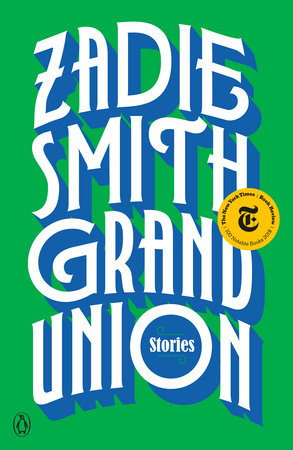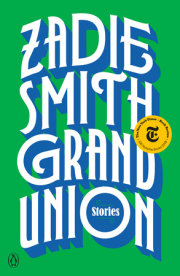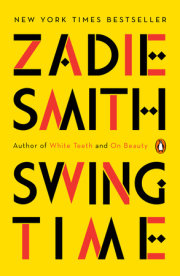The Dialectic
"I would like to be on good terms with all animals," remarked the woman, to her daughter. They were sitting on the gritty beach at Sopot, looking out at the cold sea. The eldest boy had gone to the arcade. The twins were in the water.
"But you are not!" cried the daughter. "You are not at all!"
It was true. What the woman had said was true, in intention, but what the girl had said was true, too, in reality. The woman, though she generally refrained from beef, pork, and lamb, ate-with great relish-many other kinds of animals and fish, and put out flypaper in the summer in the stuffy kitchen of their small city apartment and had once (though her daughter did not know this) kicked the family dog. The woman had been pregnant with her fourth child, at the time, and temperamental. The dog seemed to her, at that moment, to be one responsibility too many.
"I did not say that I am. I said that I should like to be."
The daughter let out a cruel laugh.
"Words are cheap," she said.
Indeed, at that moment the woman held a half-eaten chicken wing in her hand, elevated oddly to keep it from being covered in sand, and it was the visible shape of the bones in the chicken wing, and the tortured look of the thin, barbecued skin stretched across those bones, which had brought the subject to mind.
"I dislike this place," said the daughter, definitively. She was glaring at the lifeguard, who had once again had to wade into the murk to tell the only bathers-the girl's own brothers-not to go past the red buoy. They weren't swimming-they could not swim. There were no waters in the city in which to take lessons, and the seven days they spent in Sopot each year was not long enough to learn. No, they were leaping into the waves, and being knocked over by them, as unsteady on their feet as newborn calves, their chests gray with that strange silt which fringed the beach, like a great smudge God had drawn round the place with a dirty thumb.
"It makes no sense," continued the daughter, "to build a resort town around such a filthy and unwelcoming sea."
Her mother held her tongue. She had come to Sopot with her own mother and her mother had come with her mother before that. For at least two hundred years people had come here to escape the cities and let their children run wild in the public squares. The silt was of course not filth, it was natural, though no one had ever told the woman exactly what form of natural substance it was. She only knew to be sure to wash out all their costumes nightly in the hotel sink.
Once, the woman's daughter had enjoyed the Sopot sea and everything else. The candyfloss and the shiny, battery-operated imitation cars-Ferraris and Mercedes-that you could drive willy-nilly through the streets. She had, like all children who come to Sopot, enjoyed counting her steps as she walked out over the ocean, along the famous wooden boardwalk. In the woman's view, the best thing about a resort town such as this was that you did whatever everybody else did, without thinking, moving like a pack. For a fatherless family, as theirs now was, this collective aspect was the perfect camouflage. There were no individual people here. In town, the woman was on the contrary an individual, a particularly unfortunate sort of individual, saddled with four fatherless children. Here she was only another mother buying candyfloss for her family. Her children were like all children, their faces obscured by huge clouds of pink spun sugar. Except this year, as far as her daughter was concerned, the camouflage was of no use. For she was on the very cusp of being a woman herself, and if she got into one of those ludicrous toy cars her knees would touch her chin. She had decided instead to be disgusted with everything in Sopot and her mother and the world.
"It's an aspiration," said her mother, quietly. "I would like to look into the eye of an animal, of any animal, and be able to feel no guilt whatsoever."
"Well, then it has nothing to do with the animal itself," said the girl pertly, unwrapping her towel finally and revealing her precious, adolescent body to the sun and the gawkers she now believed were lurking everywhere, behind every corner. "It's just about you, as usual. Black again! Mama, costumes come in different colors, you know. You turn everything into a funeral."
The little paper boat that had held the barbecue chicken must have blown away. It seemed that no matter how warm Sopot became there would always be that northeasterly wind, the waves would be whipped up into "white horses" and the lifeguard's sign would go up and there would never be a safe time to swim. It was hard to make life go the way you wanted. Now she waved to her boys as they waved at her. But they had only waved to get their mother's attention, so that now she would see them as they curled their tongues under their bottom lips and tucked their hands into their armpits and fell about laughing when another great wave knocked them over. Their father, who could very easily be-as far as anyone in Sopot was concerned-around the next corner, buying more refreshments for his family, had in reality emigrated, to America, and now fixed car doors onto cars in some gigantic factory, instead of being the co-manager of a small garage, as he had once had the good fortune to be, before he left.
She did not badmouth him or curse his stupidity to her children. In this sense, she could not be blamed for either her daughter's sourness or her sons' immaturity and recklessness. But privately she hoped and imagined that his days were brutal and dark and that he lived in that special kind of poverty she had heard American cities can provide. As her daughter applied what looked like cooking oil to the taut skin of her tummy, the woman discreetly placed her chicken wing in the sand before quickly, furtively, kicking more sand over it, as if it were a turd she wished buried. And the little chicks, hundreds of thousands of them, perhaps millions, pass down an assembly line, every day of the week, and chicken sexers turn them over, and sweep all the males into huge grinding vats where they are minced alive.
Copyright © 2019 by Zadie Smith. All rights reserved. No part of this excerpt may be reproduced or reprinted without permission in writing from the publisher.











